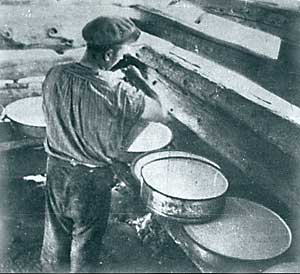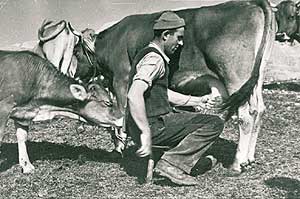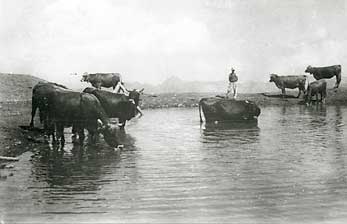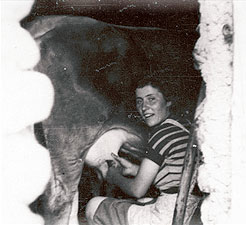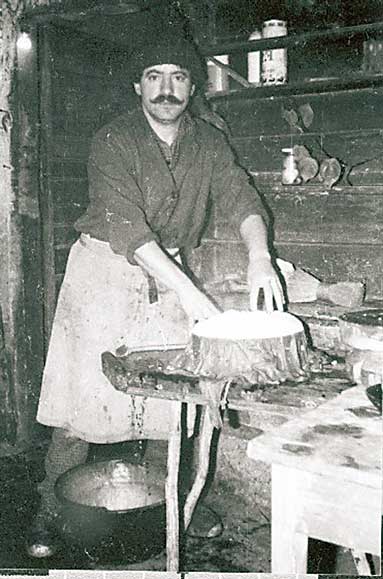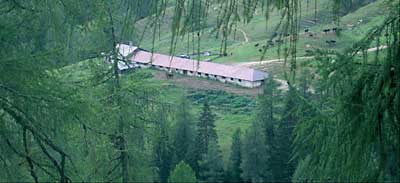
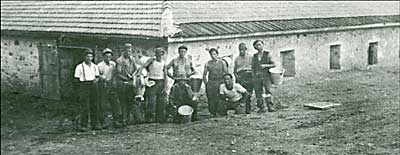
|
On the footprints of the sheperds
Uomo mentre casera, montagne
Uomo mentre munge una mucca, montagne
Laghetto di malga avalina,1950
Ragazza mentre munge una mucca, montagne
|
GOING OUT FOR MALGHE
The highest form of agritourism by Matteo Ciaghi
Up in the mountains, agritourism is an option strictly
linked to the malghe which where once the centre of the rural
alpine country life, based on two fundamental activities: the
mountain grazing and the sylviculture. Already in ancient parchments
dating back to the XIII century, the actual word “malga”
appears to document the prevailing activity of the population
in Giudicarie who, from the cattle-breeding, cows, sheep and goats
would get the necessary to survive and also earn some money. As
a matter of fact, in order to possess a malga, even bleeding disputes
would take place. An example is the “Dispute of Malga Movlina”,
a historical event dating back to 1137. There was a mortal duel
between Rendeneri, from Giustino, and Bleggiani; a desperate duel
between the representatives of the two sides, to gain the supremacy
for the survival of their own community. As time went by, the
malga played the role of preserving mountains and the pastures,
becoming an instrument to defend and safeguard the territory.
Casear, Roncone, 1979 |
© 2006-2008 EcodelleDolomiti

